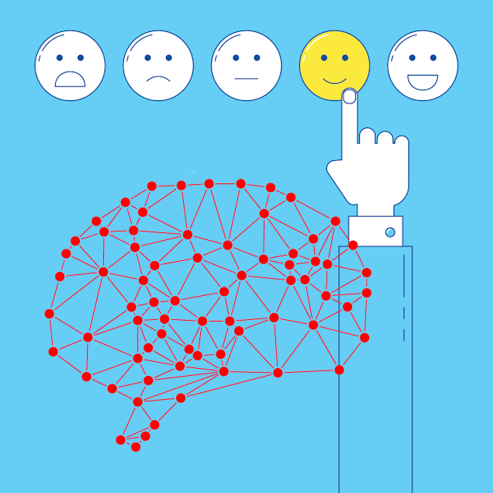Customer experience (CX) is becoming an important part of both traditional and digital paths to purchase. David Scamehorn, vice president of global data analytics and customer insights at the Radisson Hotel Group, observes, “Growing segments of influential consumers demand a new level of service and offerings that align with their lifestyle and values.”[1] He adds, “A recent study from Accenture supports this, highlighting that 61 percent of customers stopped doing business with at least one company because of a poor customer experience and 48 percent expect specialized treatment for being a loyal customer. The key to exceeding customer expectations lies in delivering personalized, rewarding experiences — which can only be informed by unlocking the power of data. A key to unlocking the power is understanding who your customers are. This requires being able to connect the right data with the right customer.” Data has become the most valuable resource in the world. That value, however, can only be extracted by advanced analytics. Increasingly, companies are tapping the advanced analytics capabilities of artificial intelligence (AI) to help them understand their customers better. Olivia Diaz (@diazoleevia) explains, “Amidst the tremendous value AI promises to provide in terms of time and cost savings internally, there is one such area where it returns meaningful returns — customer experience.”[2]
AI and CX
“What customers want these days is a superior experience,” writes author and speaker Joe McKendrick (@joemckendrick).[3] He explains there is a strengthening link between technology and customer experience: “67% of customers in a recent survey say the way a company uses technology indicates how it operates in general. And 75% expect companies to use technologies to create better experiences. And they know — almost instinctively — when technology isn’t put together too well within the company with which they are dealing.” Great customer experience is needed in pre-sale, purchasing, and post-sale interactions with consumers if they are to become loyal customers. Diaz rhetorically asks, “Do we really need AI in customer experience?” Her answer, “[AI] leverages customer data and interaction for fueling up the CX strategies, automating the daily tasks, and structuring the data to help organizations better understand the customer opinion to work on.”
The editorial staff at CIO Applications writes, “CX can be hard to manage, quantify, and support as it is dynamic, circumstantial, and produces a gigantic amount of data. AI can leverage the customer information to power CX strategies, automate the mundane tasks of cleansing data, maintain it, and help companies understand customer opinion to create more engaging experiences.”[4] Diaz and the CIO Applications staff suggest some of the ways AI can help enhance customer experience. They are:
Personalization: Diaz writes, “AI makes use of natural-data to dive deeper into every customer’s behavior and their purchase patterns to perform predictive analysis for driving better engagement at the right place and time. If the business context is paired with the AI then you can identify touchpoints and develop tactics to shape CX.” The CIO Applications staff adds, “Artificial intelligence can use ‘natural data’ to probe deeper into separate customer behavior and purchase patterns, to perform analysis and drive better engagement at the right place, and the right time.”
Advanced analytics. According to Diaz, “Every organization has an enormous data [set] collected from the digital activities and interactions of the customer that needs to be structured and mined in order to get relevant insights. Efficient customer management requires to have a 360-degree view of the customer interactions from variant channels. Also, data from the customer interactions like customer feedback, service requests and interaction times as this can be recorded to utilize it later for improving the CX.” The CIO Applications staff writes, “AI can sieve through data to predict customer trends. AI tools can manage customer information from conflicting sources and process them to extract valuable insights with swiftness and accuracy.” For example, the Enterra Shopper Marketing and Consumer Insights Intelligence System™ can leverage all types of consumer data to provide high-dimensional consumer, retailer, and marketing insights.
Customer support. The CIO Applications staff writes, “Chatbots can be used to address general customer queries, resolve problems, and provide efficient customer service. Virtual assistants can execute commands, answer questions, and help customers find the right products. Self-service agents can reduce the inconvenience of customers searching for help-articles by providing automated services.” McKendrick reports the Salesforce survey to which he referred earlier concluded, “Most customers won’t wait for someone to give them information they can find themselves. … Sixty-eight percent would rather use self-service channels — like knowledge bases or customer portals — for simple questions or issues.” On the other hand, if AI-powered assistance doesn’t provide sought after answers quickly, having human customer service reps readily available will help keep consumer frustration and anger to a minimum.
Cost savings and efficiency. The CIO Applications staff asserts, “Automated processes increase operational efficiency and productivity in customer service areas. Cognitive computing helps in understanding the customer base better by enhancing analysis and making faster decisions.” Diaz adds, “Customer experience means to provide some hassle-free and quick interactions for adding value to the customer lives and here AI helps you to serve them better in terms of simplicity and efficiency.”
Concluding thoughts
McKendrick asserts, “[Consumers are] willing to pay a premium for differentiated, first-to-market products and services that enhance their experiences.” He adds, “Customers are quite excited about the prospect of artificial intelligence being employed to boost their experiences. … Close to two-thirds, 62%, are open to the use of AI to improve their experiences — up from 59% in 2018. In addition, 59% believe AI will revolutionize the way they interact with companies. A majority, 54%, even say they trust companies to use AI in a way that benefits them.” Diaz concludes, “[AI] presents endless opportunities for combining customer data in order to create a sophisticated customer journey analytics by simplifying customer interactions, deliver meaningful messages to enhance customer engagement. Artificial Intelligence is [here to stay and] its future possibilities are highly in demand because businesses are getting to know the importance of AI-driven tools to deliver high-impact customer experience.”
Footnotes
[1] David Scamehorn, “Delivering exceptional customer experiences starts with understanding customers,” Information Management, 3 July 2019.
[2] Olivia Diaz, “The Role of Artificial Intelligence in Transforming Customer Experience,” Aithority, 24 July 2019.
[3] Joe McKendrick, “Customers Are Open To Artificial Intelligence Boosting Their Experience, Survey Shows,” Forbes, 21 June 2019.
[4] Staff, “AI’s Role in Customer Experience,” CIO Applications, 23 May 2019.





